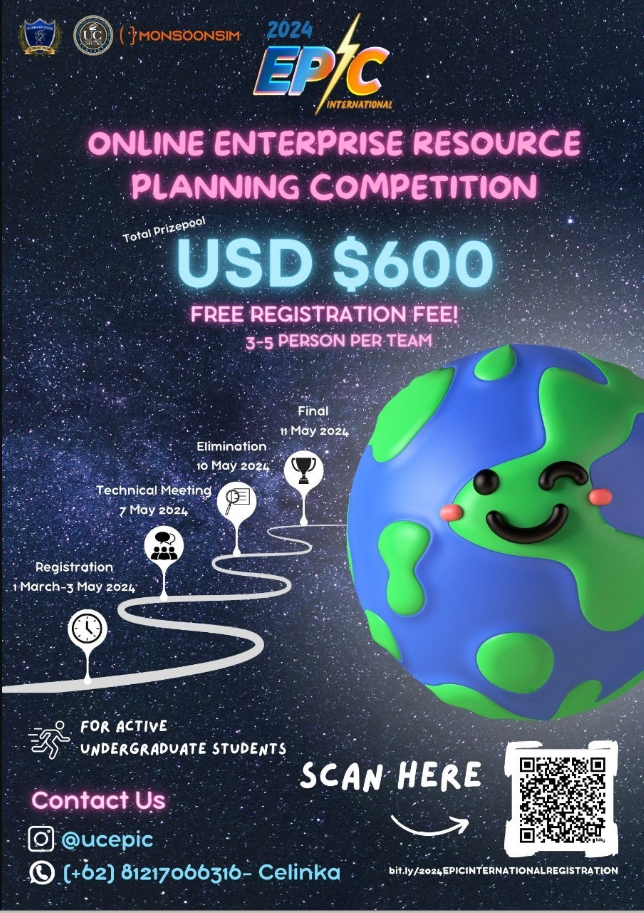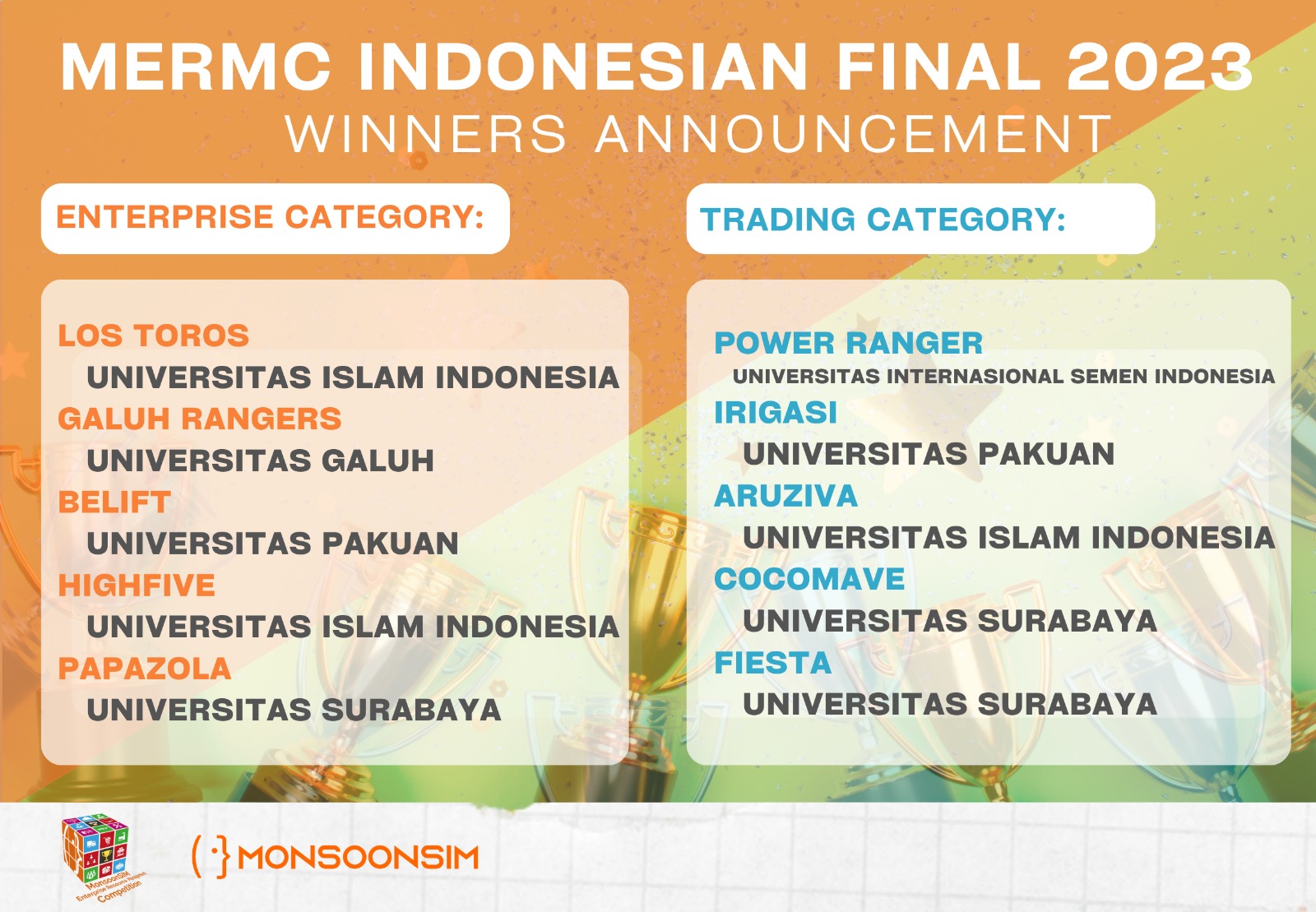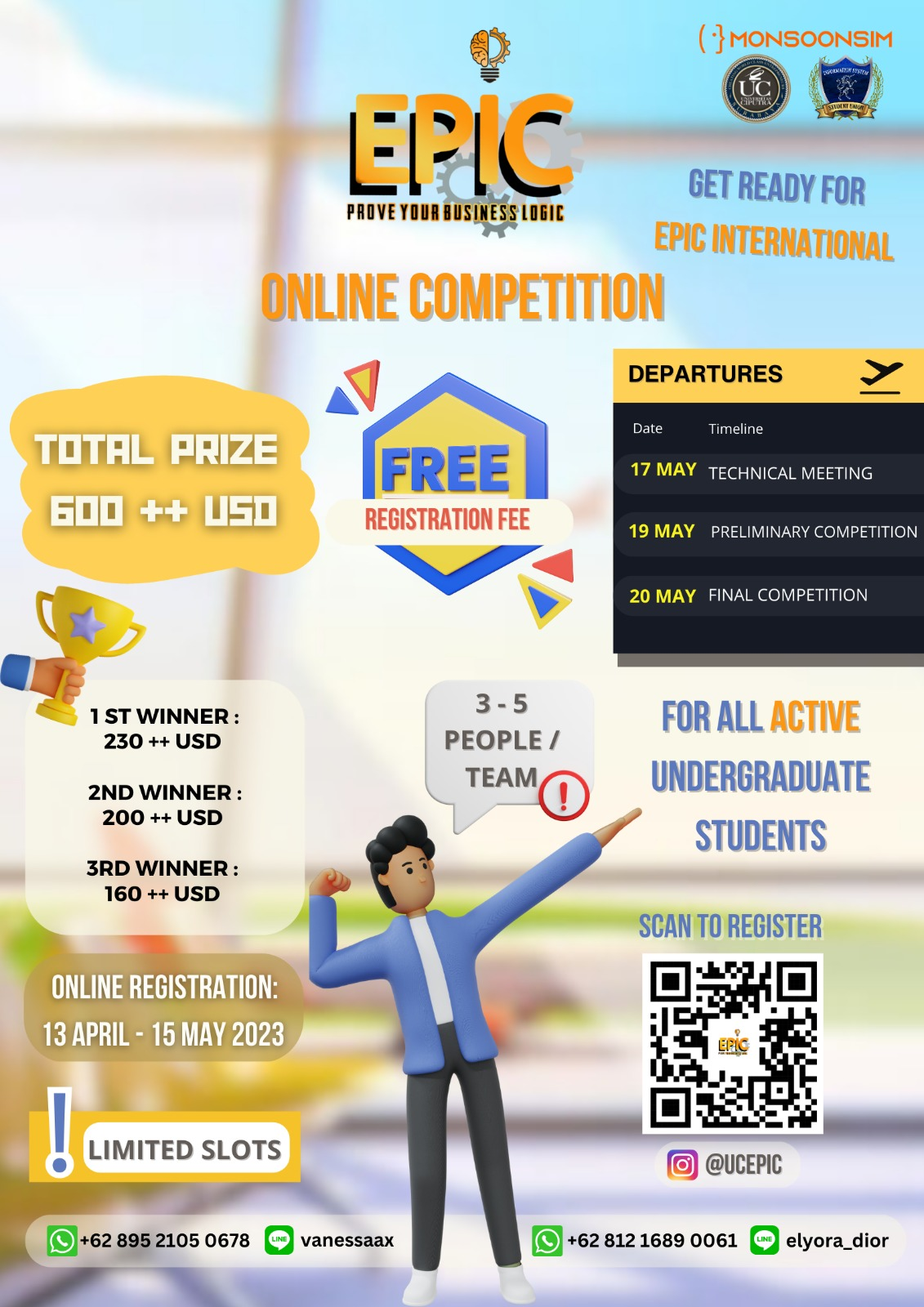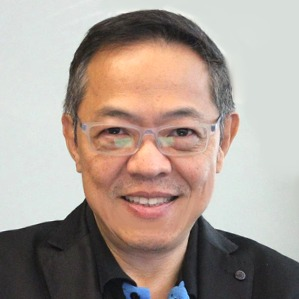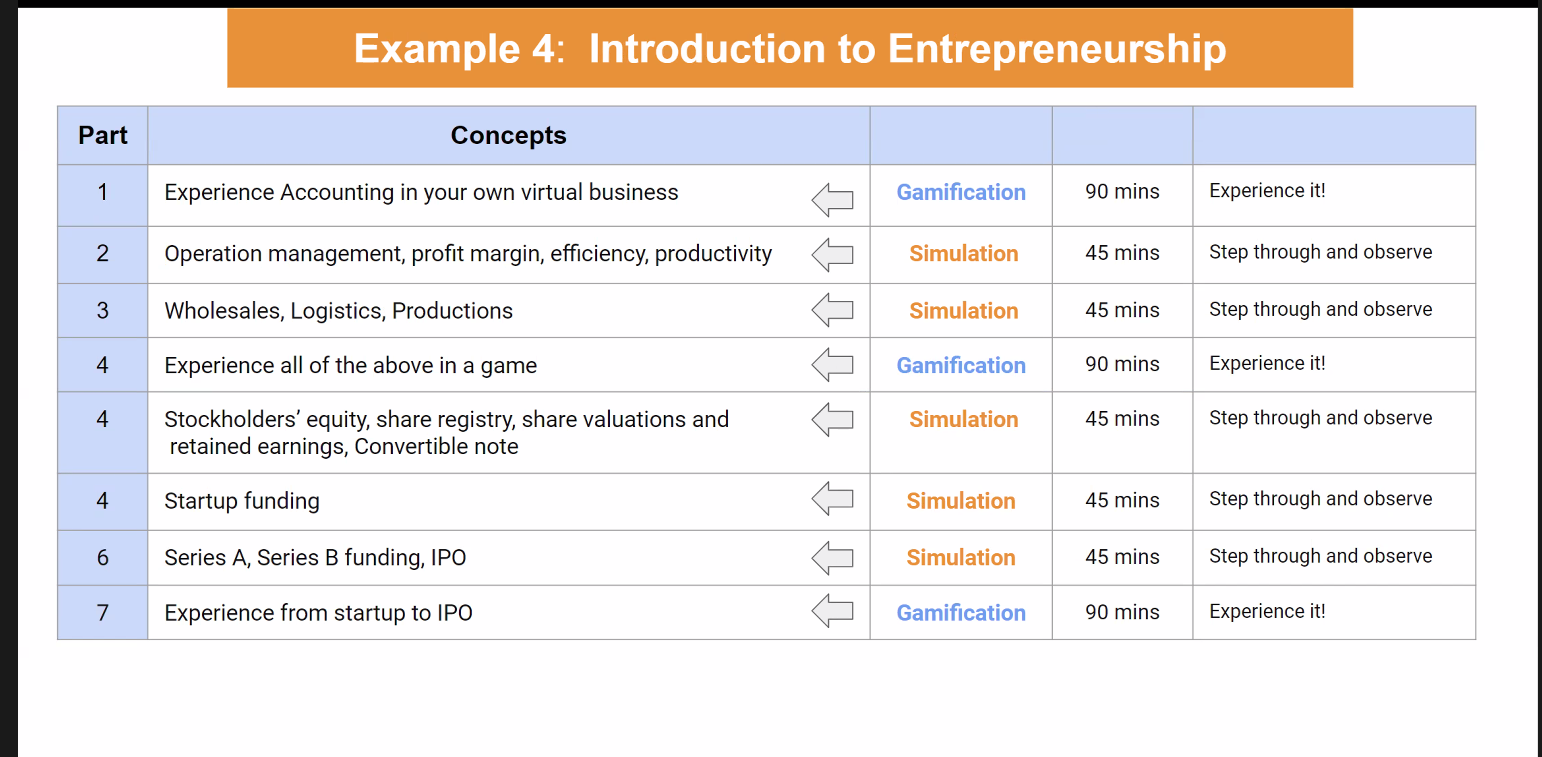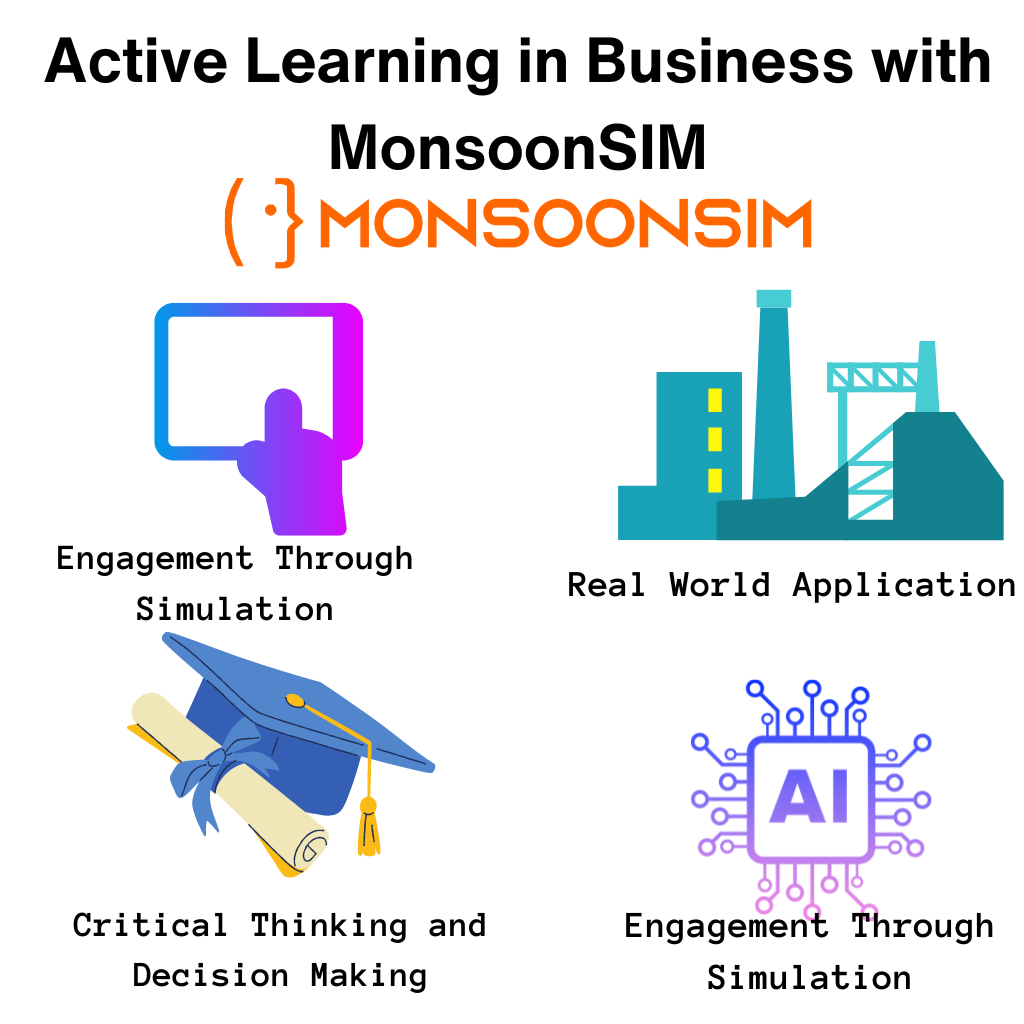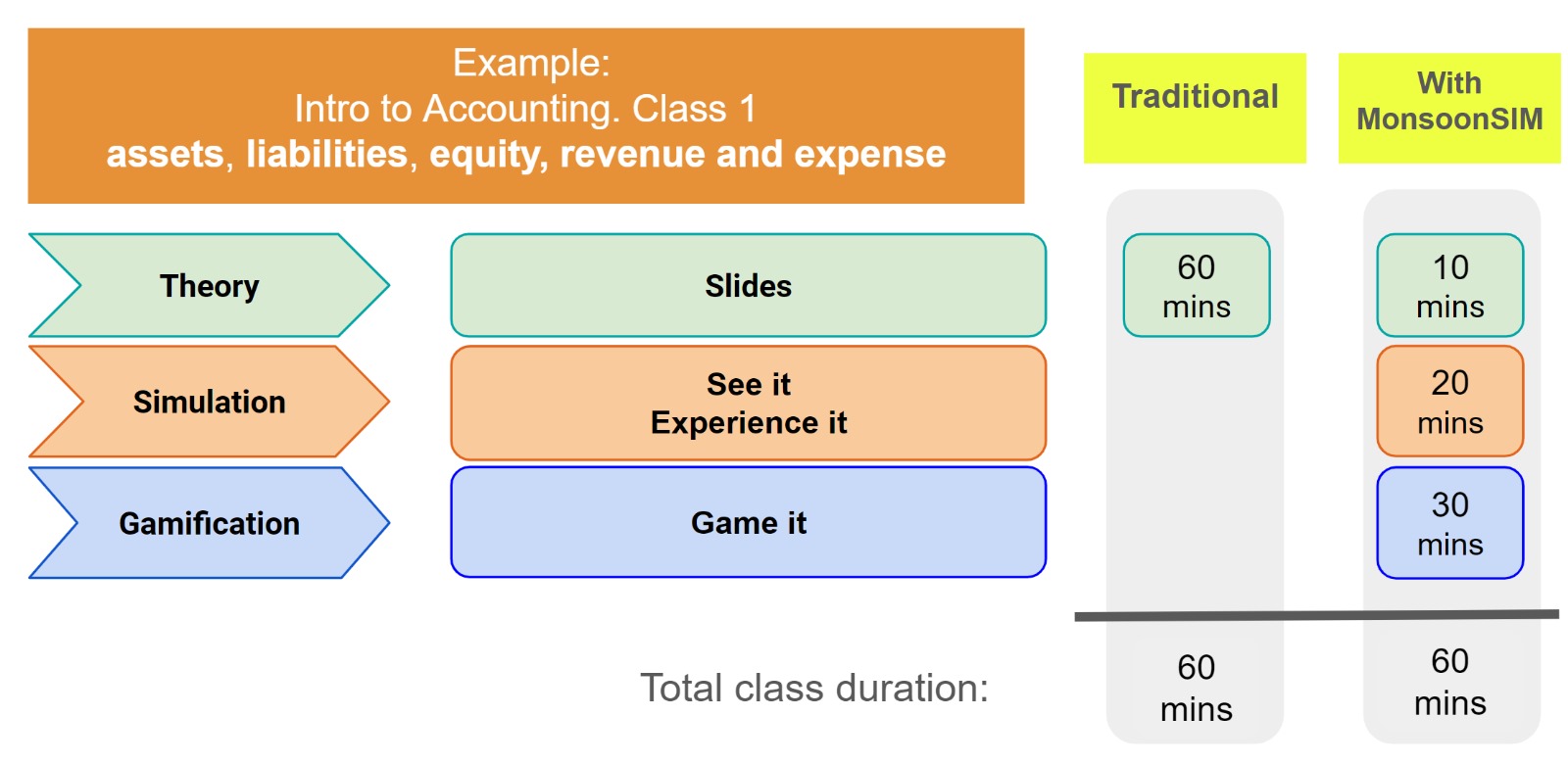In the modern business landscape, data is more than just numbers; it's a language that every employee should speak fluently. MonsoonSIM, a leader in marketing and research platforms, offers an ideal solution for businesses looking to enhance their data visualization skills across all departments.
Article Highlights
| Why Choose MonsoonSIM? | Designed with real-world business scenarios, user-friendly interface, and comprehensive business data integration. |
| Importance of Data Visualization | Only 24% of business decision-makers are confident in their data skills. Data-driven organizations are 19 times more likely to be profitable. |
| Investigative Data Analysis | MonsoonSIM teaches critical questioning of data, scrutinizing trends, and drawing correlations in business operations. |
| MonsoonSIM in the 21st Century | Emphasizes the importance of data in modern business, equipping learners with necessary skills for the data-centric business landscape. |
| Data Visualization Skills | Critical analysis, interpreting complex data sets, and effective communication of data findings. |
| Future of Data Visualization | MonsoonSIM integrates data visualization tools tailored for the modern business environment, preparing the workforce for future challenges. |
Why Choose MonsoonSIM?
- Industry Relevance: MonsoonSIM is designed with real-world business scenarios in mind. The platform’s data visualization tools are tailored for marketing and research, making them directly applicable to business needs.
- User-Friendly Interface: MonsoonSIM is designed for users of all skill levels, providing an inclusive environment for learning data visualization techniques. This ensures that everyone, from marketing to customer service, can engage with the data.
- Comprehensive Business Data Integration: MonsoonSIM stands out by seamlessly integrating diverse business data from various departments. Whether it's sales transactions from the marketing team, procurement details from the supply chain, or financial reports from the finance department, MonsoonSIM consolidates all these data points. This holistic approach not only offers a unified view of the entire business operations but also enhances the depth and breadth of data visualization exercises, ensuring that users gain insights from every facet of the business.
Want to know more about the types of business transactions player data can generate? Check out our article on Business Strategic Thinking here!
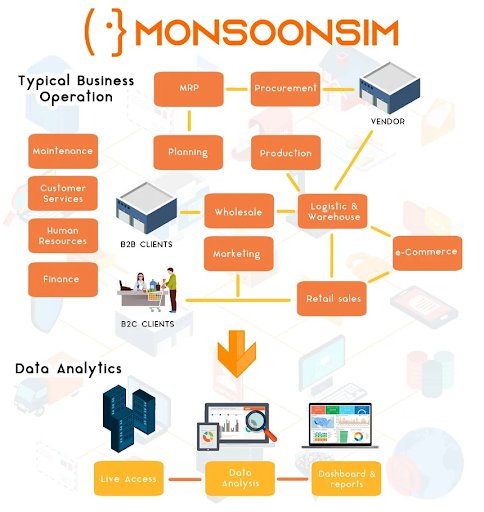
MonsoonSIM fills the gap by equipping your workforce with the necessary data visualization skills.
The Imperative of Learning Data Visualization
In today's data-driven world, the ability to interpret and present data visually is no longer just a skill but a necessity. According to a report by the Data Literacy Project, only 24% of business decision-makers have full confidence in their ability to read, work with, analyze, and argue with data. MonsoonSIM fills this gap by equipping your workforce with the necessary data visualization skills.
Fact: According to a study by MIT, data-driven organizations are 19 times more likely to be profitable.
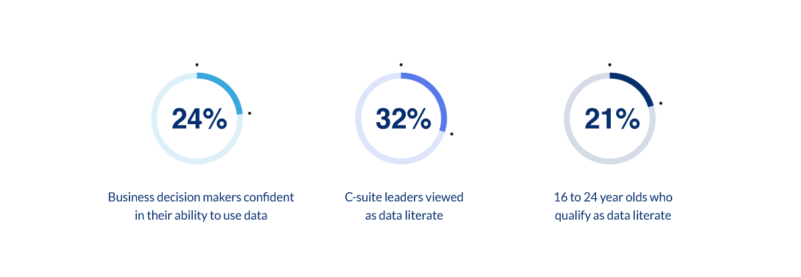 Comparison of data literacy percentages across different professional groups
Comparison of data literacy percentages across different professional groups
Investigative Data Analysis: A Facilitator-Guided Approach
MonsoonSIM is not just about providing data; it's about teaching how to question it critically. Facilitators can guide students through the investigative data analysis process, prompting them to ask the 'what,' 'why,' and 'how' of business operations. This involves scrutinizing trends, identifying outliers, and drawing correlations among various business aspects, all of which can be visualized in real-time within the platform.
Fact: The platform allows facilitators to select from a variety of KPIs to focus the investigation on specific business modules like Marketing, Retail, or Supply Chain Management.
Discover key facilitator strategies for maximizing MonsoonSIM game effectiveness
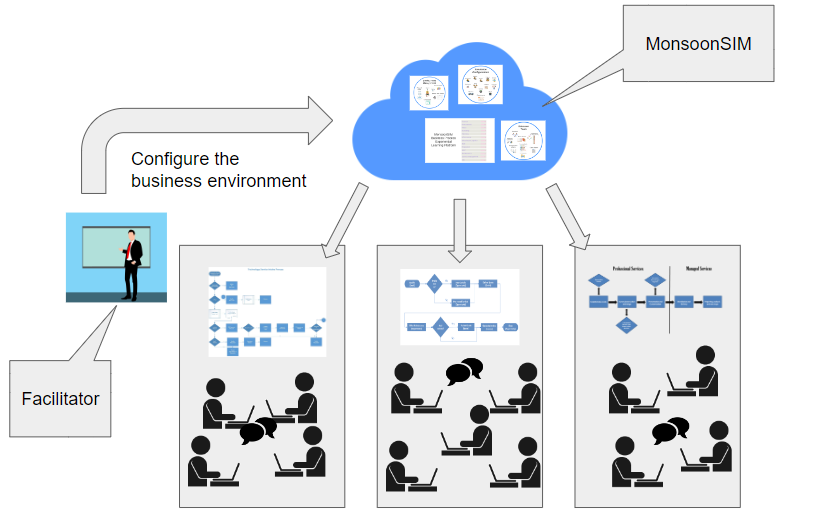 the MonsoonSIM platform
the MonsoonSIM platform
MonsoonSIM and Data Visualization in the 21st Century
The Fourth Industrial Revolution, often referred to as Industry 4.0, emphasizes the importance of data in modern business. With the rise of automation, IoT, and artificial intelligence, the ability to visualize and interpret data has become paramount. MonsoonSIM, with its experiential learning approach, is at the forefront of this revolution, ensuring that learners are equipped with the necessary skills to navigate the data-centric landscape of today's business world.
In our latest video, 'Forecasting in MonsoonSIM: Navigating Business Challenges with Data-Driven Insights,' we demonstrate how MonsoonSIM serves as a comprehensive tool for teaching data visualization by enabling learners to interpret and act on complex forecasts, thereby honing their data-driven decision-making skills.
Find out how MonsoonSIM uses gamified learning to make data literacy accessible to all.
Data Visualization and 21st Century Skills
MonsoonSIM's platform not only provides a gamified business environment but also emphasizes the importance of data visualization. As learners navigate through various business scenarios, they are exposed to vast amounts of data that need to be interpreted and acted upon. This hands-on approach ensures that learners develop crucial data visualization skills, such as:
- Critical Analysis of Data: MonsoonSIM challenges learners to critically analyze data, identify trends, and make informed decisions based on their findings.
- Interpreting Complex Data Sets:The platform exposes learners to various business metrics, requiring them to draw correlations and understand the bigger picture.
- Effective Communication of Data:As learners work in teams, they need to effectively communicate their data findings and insights, ensuring that everyone is on the same page.
For a deeper dive into the comprehensive skills developed through MonsoonSIM, we recommend reading our article on 21st-century skills cultivated through MonsoonSIM's business simulation. Discover how our platform goes beyond just data visualization to foster holistic business acumen.
The platform allows facilitators to select from a variety of KPIs to focus the investigation on specific business modules like Marketing, Retail, or Supply Chain Management.
Explore the experiential learning approach of MonsoonSIM in enhancing data visualization skills.
The Future of Data Visualization with MonsoonSIM
In the era of Industry 4.0, data visualization is not just a skill but a necessity. MonsoonSIM recognizes this and has integrated data visualization tools tailored for the modern business environment. As the demand for data-centric roles continues to grow, platforms like MonsoonSIM will play a pivotal role in preparing the workforce for the challenges ahead.
In conclusion, MonsoonSIM bridges the gap between traditional business education and the demands of the modern data-driven world. By focusing on data visualization and 21st-century skills, it ensures that learners are well-equipped to thrive in today's competitive business landscape.
Have a go at MonsoonSIM’s free trial server for effective eLearning in data visualization
See how MonsoonSIM is revolutionizing data literacy training, a key component of data visualization skills
Frequently Asked Questions:
Q: What is MonsoonSIM?
A: MonsoonSIM is a business simulation platform that provides an experiential learning environment. It is designed to enhance understanding of business operations and data visualization across various departments.
Q: How does MonsoonSIM facilitate data visualization?
A: MonsoonSIM allows learners to visualize a wide array of data types, including sales, financial, inventory, customer, and production data. This helps in identifying trends, patterns, and insights crucial for making informed business decisions.
Q: Can MonsoonSIM be used to analyze sales data?
A: Yes, MonsoonSIM enables learners to analyze and visualize sales data, helping them identify trends, customer preferences, and regional sales performance. This assists in strategic planning and decision-making.
Q: What financial data can be visualized in MonsoonSIM?
A: Learners can visualize various financial data like revenue, expenses, and profit margins. This helps in understanding the financial health of the business and in identifying potential areas for cost-saving or investment.
Q: How does MonsoonSIM handle inventory data?
A: MonsoonSIM allows learners to track and analyze inventory data. This includes optimizing stock levels, monitoring product demand, and identifying slow-moving items, thereby aiding in efficient inventory management. Discover how MonsoonSIM handles inventory data effectively.
Q: Is customer data analysis possible in MonsoonSIM?
A: Yes, MonsoonSIM facilitates the visualization of customer data, enabling learners to understand customer demographics, buying patterns, and preferences. This information can be used to develop targeted marketing strategies.
Q: Can MonsoonSIM help in optimizing production processes?
A: MonsoonSIM allows learners to analyze production data, helping them identify bottlenecks, improve process efficiencies, and optimize manufacturing output and resource utilization.
Q: Who can benefit from MonsoonSIM’s data visualization features?
A: Both students and professionals across various fields can benefit from MonsoonSIM’s data visualization features. It’s particularly useful for those in business, management, finance, and marketing.
Q: Is MonsoonSIM suitable for all skill levels?
A: Yes, MonsoonSIM has a user-friendly interface that caters to users of all skill levels, making it accessible for beginners yet challenging enough for advanced users. Check out how MonsoonSIM is suitable for all skill levels. Check out how MonsoonSIM is suitable for all skill levels.
Q: How does MonsoonSIM prepare learners for future business challenges?
A: By integrating advanced data visualization tools and focusing on practical business scenarios, MonsoonSIM prepares learners to navigate complex business environments and make data-driven decisions effectively.




